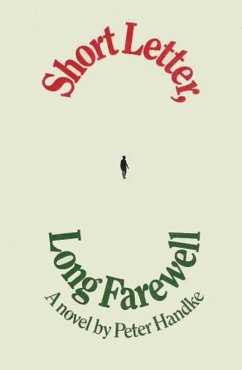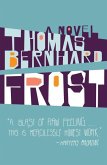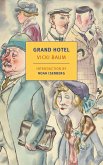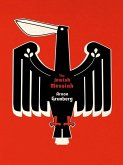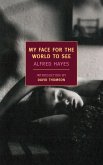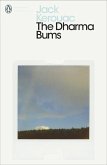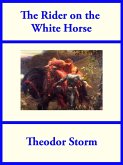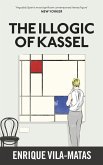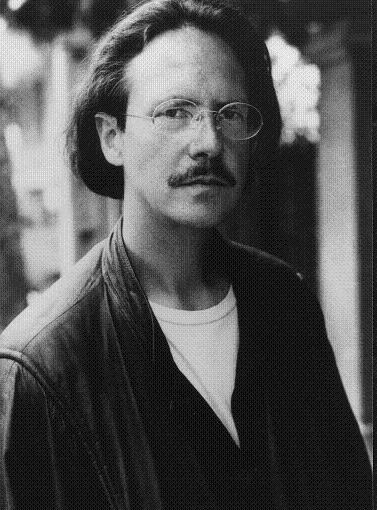Nobel Prize winner Peter Handke's novel Short Letter, Long Farewell tells the story of a young Austrian--evidently modeled on the author--on a harrowing month's journey across the United States
The book opens in Providence, where a letter awaits the un-named narrator from his estranged wife, Judith. "I am in New York," it says. "Please don't look for me. It would not be nice for you to find me."
As the novel proceeds, however, it gradually becomes clear that Judith is pursuing him, not vice versa--pursuing with the intent to kill. He spends a day in New York, then goes on to Philadelphia, where he joins an old flame and her daughter. The trio drives to St. Louis, still shadowed by Judith; partly to escape her (and partly to face her), the narrator strikes out west on his own, to Tucson, where he is robbed by Judith's agents, then up to the Oregon coast, where a roadside showdown takes place and a gunshot echoes over the Pacific.
"I seem to have been born for horror and fear," Handke's narrator confesses.
As the narrator and Judith maneuver toward their coastal rendezvous, his life itself may depend on whether he has achieved enough--in the flesh and in the mind--to confront the pistol trembling in her hand.
The book opens in Providence, where a letter awaits the un-named narrator from his estranged wife, Judith. "I am in New York," it says. "Please don't look for me. It would not be nice for you to find me."
As the novel proceeds, however, it gradually becomes clear that Judith is pursuing him, not vice versa--pursuing with the intent to kill. He spends a day in New York, then goes on to Philadelphia, where he joins an old flame and her daughter. The trio drives to St. Louis, still shadowed by Judith; partly to escape her (and partly to face her), the narrator strikes out west on his own, to Tucson, where he is robbed by Judith's agents, then up to the Oregon coast, where a roadside showdown takes place and a gunshot echoes over the Pacific.
"I seem to have been born for horror and fear," Handke's narrator confesses.
As the narrator and Judith maneuver toward their coastal rendezvous, his life itself may depend on whether he has achieved enough--in the flesh and in the mind--to confront the pistol trembling in her hand.
Dieser Download kann aus rechtlichen Gründen nur mit Rechnungsadresse in D ausgeliefert werden.
The Austrian novelist Peter Handke is known for his fictional meditations on the uneasy relationship between language and reality. These three interrelated stories are the work of a totally serious major artist,' Malcolm Bradbury said here in 1985. 'He believes in writing as an artistic and philosophical inquiry, a search into forms.' The New York Times
The three works comprising Slow Homecoming are closer to a true dialectic than Handke s work has ever before sought. American Book Review
This is a postmodernism in its most exciting and challenging form, a work of literature that makes the redefinition of reality and of fiction a possibility. Choice
Handke s self-portrait of the artist [leaves] us with doubts that can only be induced by the work of a totally serious major artist. Malcolm Bradbury, The New York Times Book Review
"Handke is a prolific writer of plays, poetry, short stories, literary essays and scripts for television and film...Handke orders in a language so powerful and self-possessed - and marvelously translated by Ralph Manheim - without ever being precious or self-conscious, that it creates an imagined awareness a leap beyond what we thought possible. A rich and delicate gift, before which the reader both spins and stands still." The San Francisco Chronicle
A leading literary figure in the first generation of Germans to grow up after the war...He is a man of real intellectual power and sometimes visionary insight. His fingers are never far from the pulse... The Washington Post
______________________________________________
PRAISE FOR HANDKE
One of the most original and provocative of contemporary writers. Lawrence Graver, The New York Times
Peter Handke perhaps the most interesting young writer in German today. Frank Kermode
"There is no denying Handke's willful intensity and knife-like clarity of emotion. He writes from an area beyond psychology, where feelings acquire the adamancy of randomly encountered, geologically analyzed pebblesÉThe best writer, altogether, in his language." John Updike, The New Yorker
"His experimental poetry and anarchic, anti-authoritarian work win him a following among Germany's left-wing `1968ers'. Handke aims to strip away unnecessary words and challenge linguistic conventions, developing a spare, robust prose style." The Guardian
"IMAGINE a cross between Holden Caulfield and Bertolt Brecht, and you'll have a sense of the Austrian novelist, playwright and screenwriter Peter Handke, whose alienation from the phony and harmful adult world is as pure as his esthetic purity is purposefully alienating...As it happened, Handke ended up writing social criticism with a vengeance...though to some degree time-bound tales of angst, have a pained, mysterious beauty. Their alluring tension lies in the little war they prosecute between eloquence of expression and rage at the loss of meaning." The New York Times
"Peter Handke made his reputation as an important writer with a fierce, icy set of plays and novels: Offending the Audience, Kaspar, The Ride Across Lake Constance, The Goalie's Anxiety at the Penalty Kick and Short Letter, Long Farewell. Oblique yet startlingly immediate, these works embodied in fresh fictional and dramatic forms concerns that seemed particularly postmodern, notably an obsession (indeed, a disgust) with the way language itself defines and constricts human possibilities." The New York Times
The David Byrne of fiction: a writer with a resonant, powerfully direct voice who could invoke the particular Sartrean nausea of postmodern existence in the simplest events. The New York Times
Handke is a securely established star of the German-speaking literary world, the darling of the West German critics, and a key figure of his generation. The New York Times
One of the most original and provocative of contemporary writers. The New York Times
Handke was and is, one of the most eminent narrative and dramatic writers of postwar Europe. The Boston Globe
Peter Handke must be acknowledged as one of the major voices in contemporary fiction. Partisan Review
One awaits with pleasure whatever Peter Handke turns to next Since the 1960s, he has been a popularly acclaimed novelist, playwright and poet and a long-standing critical success. He now creates a more rarefied, demanding art coupled with a lucid yet mythic affirmation of life. The Boston Herald
In power and vision and range, Peter Handke is the most important new writer on the international scene since Beckett. Stanley Kaufmann, Saturday Review
His prose is reminiscent of the writings of Henry James a passion for understanding, for grasping the tortured complexities of contemporary life. The Philadelphia Inquirer
Peter Handke achieved the kind of succes de scandale every ambitious young writer dreams of... and Mr. Handke became the enfant terrible of the European avant-garde...But Mr. Handke has aged well, and now, as the prolific author of plays, novels, essays, stories and poems, he is regarded as one of the most important writers in German. The New York Times
The three works comprising Slow Homecoming are closer to a true dialectic than Handke s work has ever before sought. American Book Review
This is a postmodernism in its most exciting and challenging form, a work of literature that makes the redefinition of reality and of fiction a possibility. Choice
Handke s self-portrait of the artist [leaves] us with doubts that can only be induced by the work of a totally serious major artist. Malcolm Bradbury, The New York Times Book Review
"Handke is a prolific writer of plays, poetry, short stories, literary essays and scripts for television and film...Handke orders in a language so powerful and self-possessed - and marvelously translated by Ralph Manheim - without ever being precious or self-conscious, that it creates an imagined awareness a leap beyond what we thought possible. A rich and delicate gift, before which the reader both spins and stands still." The San Francisco Chronicle
A leading literary figure in the first generation of Germans to grow up after the war...He is a man of real intellectual power and sometimes visionary insight. His fingers are never far from the pulse... The Washington Post
______________________________________________
PRAISE FOR HANDKE
One of the most original and provocative of contemporary writers. Lawrence Graver, The New York Times
Peter Handke perhaps the most interesting young writer in German today. Frank Kermode
"There is no denying Handke's willful intensity and knife-like clarity of emotion. He writes from an area beyond psychology, where feelings acquire the adamancy of randomly encountered, geologically analyzed pebblesÉThe best writer, altogether, in his language." John Updike, The New Yorker
"His experimental poetry and anarchic, anti-authoritarian work win him a following among Germany's left-wing `1968ers'. Handke aims to strip away unnecessary words and challenge linguistic conventions, developing a spare, robust prose style." The Guardian
"IMAGINE a cross between Holden Caulfield and Bertolt Brecht, and you'll have a sense of the Austrian novelist, playwright and screenwriter Peter Handke, whose alienation from the phony and harmful adult world is as pure as his esthetic purity is purposefully alienating...As it happened, Handke ended up writing social criticism with a vengeance...though to some degree time-bound tales of angst, have a pained, mysterious beauty. Their alluring tension lies in the little war they prosecute between eloquence of expression and rage at the loss of meaning." The New York Times
"Peter Handke made his reputation as an important writer with a fierce, icy set of plays and novels: Offending the Audience, Kaspar, The Ride Across Lake Constance, The Goalie's Anxiety at the Penalty Kick and Short Letter, Long Farewell. Oblique yet startlingly immediate, these works embodied in fresh fictional and dramatic forms concerns that seemed particularly postmodern, notably an obsession (indeed, a disgust) with the way language itself defines and constricts human possibilities." The New York Times
The David Byrne of fiction: a writer with a resonant, powerfully direct voice who could invoke the particular Sartrean nausea of postmodern existence in the simplest events. The New York Times
Handke is a securely established star of the German-speaking literary world, the darling of the West German critics, and a key figure of his generation. The New York Times
One of the most original and provocative of contemporary writers. The New York Times
Handke was and is, one of the most eminent narrative and dramatic writers of postwar Europe. The Boston Globe
Peter Handke must be acknowledged as one of the major voices in contemporary fiction. Partisan Review
One awaits with pleasure whatever Peter Handke turns to next Since the 1960s, he has been a popularly acclaimed novelist, playwright and poet and a long-standing critical success. He now creates a more rarefied, demanding art coupled with a lucid yet mythic affirmation of life. The Boston Herald
In power and vision and range, Peter Handke is the most important new writer on the international scene since Beckett. Stanley Kaufmann, Saturday Review
His prose is reminiscent of the writings of Henry James a passion for understanding, for grasping the tortured complexities of contemporary life. The Philadelphia Inquirer
Peter Handke achieved the kind of succes de scandale every ambitious young writer dreams of... and Mr. Handke became the enfant terrible of the European avant-garde...But Mr. Handke has aged well, and now, as the prolific author of plays, novels, essays, stories and poems, he is regarded as one of the most important writers in German. The New York Times

